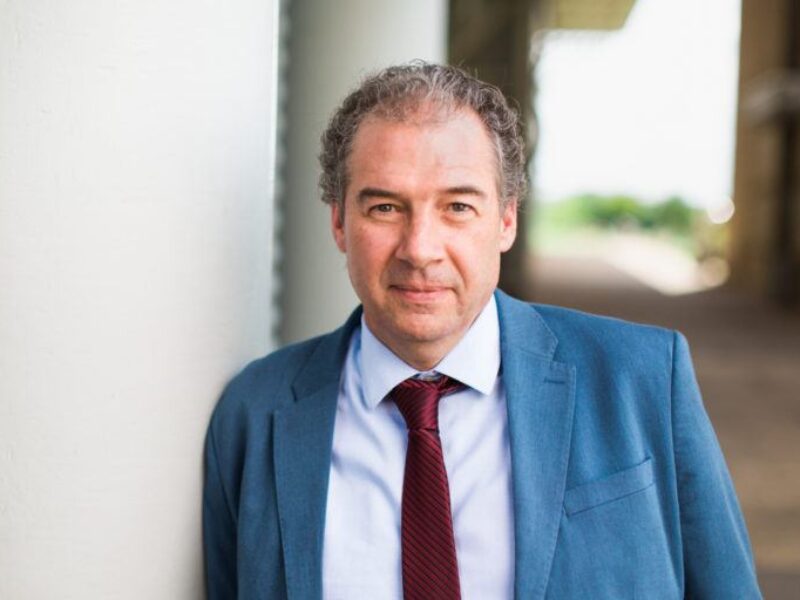‘Step In. Stand Up.’
 To be victimized, to suffer shame, to feel unsupported – sexual violence on college campuses is horrifying for those involved, as well as the campus community. To provide the Aggie community with an open dialogue, resources and support, Texas A&M University has begun the “Step In. Stand Up.” campaign, encouraging everyone to take a stand against sexual violence, including sexual assault, sexual harassment, and dating violence.
To be victimized, to suffer shame, to feel unsupported – sexual violence on college campuses is horrifying for those involved, as well as the campus community. To provide the Aggie community with an open dialogue, resources and support, Texas A&M University has begun the “Step In. Stand Up.” campaign, encouraging everyone to take a stand against sexual violence, including sexual assault, sexual harassment, and dating violence.
“’Step In. Stand Up.’ means it’s on us,” says Cynthia Hernandez, assistant vice president for student affairs. “It’s on all of us to find out how we can help, how can we change the culture and promote the message that sexual and dating violence is not acceptable in our culture. This campaign is about recognizing that we all play a part in this.”
Student leaders from across campus are involved in the campaign, including Hannah Wimberly ’17, chief of staff of the Student Government Association and a human resource development major. “Statistics have indicated that 1 in 5 women are targets of attempted or completed sexual assault while they are college students, and about 1 in 16 college men are subject to the same,” she states. “College-aged women are four times more likely than any other age group to face sexual assault.”
Wimberly says Texas A&M is the ideal campus for such a proactive campaign.
“As Aggies, we stand for many things. We stand loud and proud as the 12th Man at sporting events, we stand in solemn silence at Silver Taps, and we must ‘Step In and Stand Up’ against sexual violence on campus.” — Hannah Wimberly ’17
The campaign, led by students and supported by faculty and staff, is about opening up a dialogue about both prevention and response, say organizers.
Texas A&M Athletics has joined the campaign with Head Football Coach Kevin Sumlin and several athletes actively participating. Sumlin says the campaign is meaningful to him on both professional and personal levels. “As the father of two girls and two boys, this subject is personally very important to me,” he says. “As the head coach of over 100 collegiate student-athletes, we continue our efforts to educate and to take a stand against sexual violence.”
Senior geography major Lance Lozano is a member of the Aggie Experience Council and has taken it upon himself to spread awareness about the initiative. Lozano, who gives campus tours to visitors, says he felt inspired to join the movement because he’s known people who’ve experienced sexual and dating violence, and “it baffles me that some people have the nerve to cause such trauma in a person’s life.” He says he hopes to inspire other Aggie men to take a stand, too. “If they know anyone who’s been hurt or is in an abusive relationship, they should help that person however they can,” he states.
Organizers say they hope campus community members take an active role in preventing sexual violence by reporting incidences and intervening when necessary. “We offer Green Dot bystander training with workshops throughout the year. And from a survivor assistance standpoint, there are many resources available such as counseling and health services, victims’ advocates and University Police,” says Hernandez.
“‘Don’t let friends drink and drive’ is so ingrained in our culture; we can learn to intervene similarly when it comes to sexual violence.” – Cynthia Hernandez, assistant vice president for student affairs
Representing Aggie Greeks in the campaign efforts has been senior political science major Maddison Malone, current president of the Collegiate Panhellenic Council, who says it’s important for every student to become involved in the effort, but maybe even more so for fraternity and sorority members. “Greek organizations are some of the largest on campus, so we have the opportunity to utilize our platform to reach a very large audience through our involvement in this campaign,” she states.
Shane Hinckley, interim vice president of marketing and communications, notes the importance of students leading the campaign. “We hope students will take the concept and run with it, similar to what happened with The Big Event,” he notes. “We hope to have student-designed events throughout the year – lectures, documentary screenings, pledge-signings – that will bring awareness and keep the dialogue open.”
Hinckley adds the issue is playing a greater role in his own life this fall as his daughter is starting college. “As a parent myself, I’d like to feel like I’m helping other parents know they’re sending their daughter or son to a place where we are actively trying to provide a safe environment.”
Christine Stanley, vice president and associate provost for diversity, agrees, saying, “One of our jobs as an educational institution is to make sure we have an environment that is safe for our faculty, staff and students. Criminal behavior like this has no place here; it detracts from learning and our ability to work and thrive. We are letting it be known, this will not be tolerated on our campus.”
“My hope for the campaign is that ‘Step In. Stand Up.’ becomes the newest Aggie tradition,” concludes Malone. “I hope anytime an Aggie is in need of this kind of help, they think of the campaign and know exactly where to turn for support.”
To learn more about the “Step In. Stand Up.” campaign and the resources and support available to the Texas A&M community, visit http://stepinstandup.tamu.edu.
Learn more about the Association of American Universities (AAU) Campus Climate Survey, which focuses on the climate of sexual assault and misconduct on college campuses across the nation.
What is Title IX?
Title IX of the Education Amendments of 1972 says, “No person in the United States shall, on the basis of sex, be excluded from participation in, be denied the benefits of, or be subjected to discrimination under any education program or activity receiving Federal financial assistance.” Among other protections, Title IX protects individuals from sexual harassment; the failure to provide equal opportunity in athletics; discrimination based on pregnancy; and sex-based discrimination in recruitment, admissions and counseling. Know your Title IX rights — visit the U.S. Department of Education online for more information.
What is sexual violence?
Sexual violence is a sexual act committed against someone without that person’s freely given consent. This can include forced assault, alcohol or drug-facilitated assault, dating violence, verbal pressure, unwanted touching, and unwanted sexual comments. Learn more at cdc.gov.
What is sexual assault?
A type of sexual violence, sexual assault is a forced attack that can include forced sexual intercourse, forcible sodomy, child molestation, incest, fondling, and attempted rape. Learn more at justice.gov.
What is dating violence?
Dating violence is a type of sexual violence when one person purposely hurts or scares someone they are dating. It can happen on a first date or after many years together, and can include physical abuse, emotional and verbal abuse, and sexual abuse. Learn more at cdc.gov.
What is sexual harassment?
The term “sexual harassment” refers to unwanted sexual contact or comments, and is oftentimes used to describe such behavior when it occurs at work or school. This can include inappropriate touching, unwelcome sexual advances, requests for sexual favors, and other verbal or physical harassment of a sexual nature. This can also include unwelcome comments about a person’s gender. Learn more at eeoc.gov.





